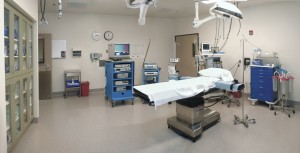 If you were injured by a healthcare provider, you may be entitled to compensation for your existing and future financial losses and non-economic damages such as pain and suffering. Medical malpractice claims can be brought against any type of healthcare provider, not just doctors and surgeons. In addition to individual healthcare practitioners, facilities such as hospitals, and companies such as ambulance services can be held responsible for medical negligence. Medical claims are complicated and the laws vary greatly from state to state.
If you were injured by a healthcare provider, you may be entitled to compensation for your existing and future financial losses and non-economic damages such as pain and suffering. Medical malpractice claims can be brought against any type of healthcare provider, not just doctors and surgeons. In addition to individual healthcare practitioners, facilities such as hospitals, and companies such as ambulance services can be held responsible for medical negligence. Medical claims are complicated and the laws vary greatly from state to state.
Defining Medical Negligence
If you have suffered a poor medical outcome or if someone you love died during or after medical treatment, it is natural to assume that medical malpractice is to blame. But what happened to you or your loved one may not be classified as medical negligence under the law.
Medical negligence occurs when a healthcare provider performs below the accepted standard of care. You will need at least one expert who can testify as to whether or not that standard was met in your specific case. Your medical malpractice attorney should already have an established network of experts to choose from.
There are certain types of harm that are considered obvious malpractice including:
- Leaving a foreign object inside a patient’s body after surgery. Examples include gauze, surgical instruments, or sponges.
- Wrong site surgery, which includes surgery on the wrong patient or wrong part of the body such as the wrong limb or organ.
Caps and Other Craziness
Medical malpractice laws are some of the craziest laws on the books, and in many states they are designed to make it as difficult as possible for victims and their families to recover fair compensation.
Damage caps limit the amount of compensation you can receive, even if a jury thinks you deserve more. In most states with caps, the cap only applies to non-economic damages, but some states cap total damages including economic damages.
Time limits can be very short, and are also different in each state. Procedural requirements can also be very complicated and confusing, and are much more complicated than in other types of personal injury.
Learn more about medical malpractice lawsuits, including information about birth injury, emergency room errors, and wrong site surgery.















